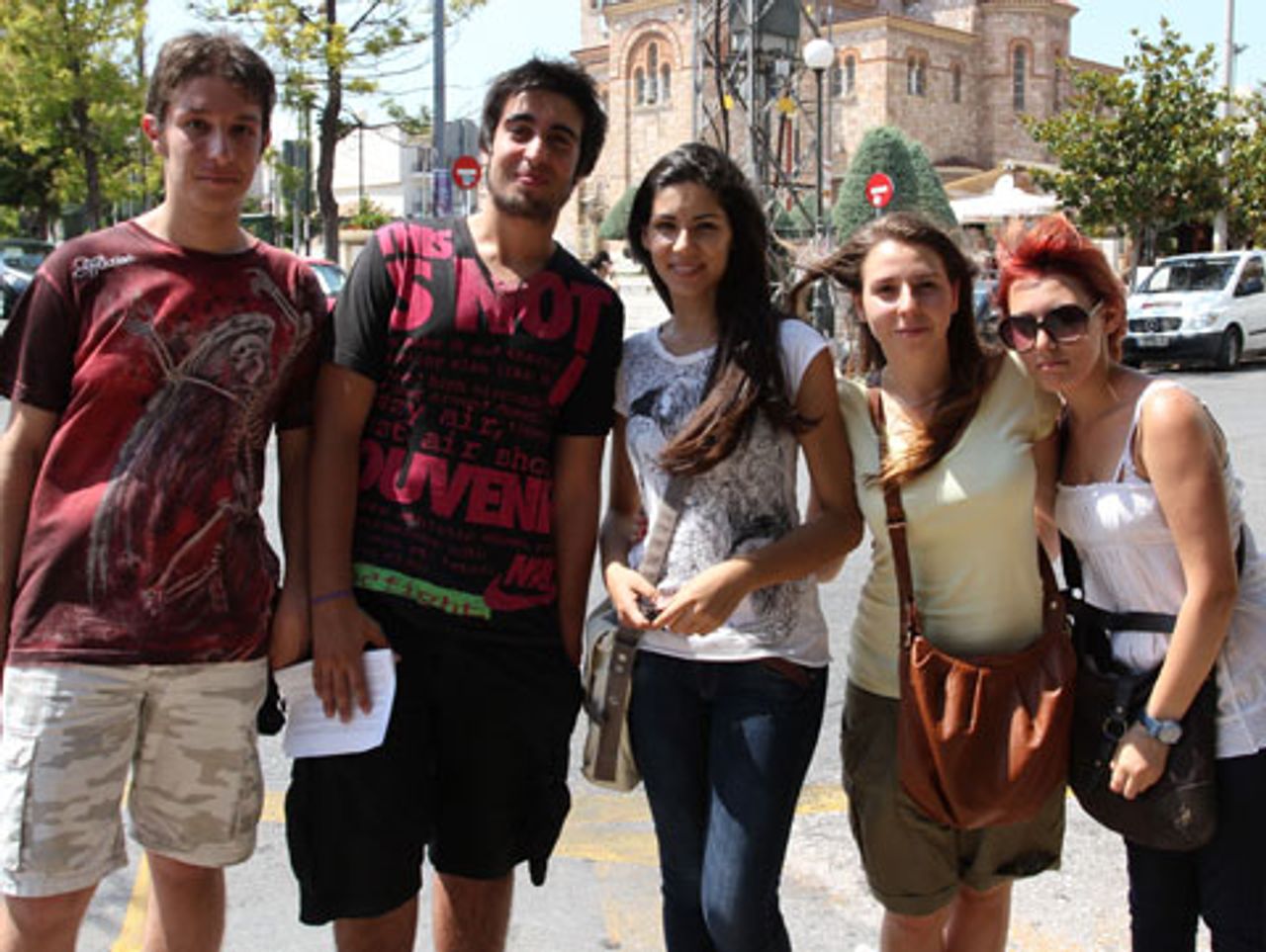Residents in the district of Aigaleo in west Athens spoke to the World Socialist Web Site about their attitudes to Sunday’s election. The area is a working class district, with higher than average levels of unemployment and poverty.
Due to the widespread popular anger that has swept Greece since the introduction of mass austerity by the social democratic PASOK government that came to power in October 2009, both it and the conservative New Democracy (ND) party saw a collapse in their vote in the May 6 election. SYRIZA (Coalition of the Radical Left) won 24.5 percent of the vote and the Stalinist Greek communist party (KKE), which has also criticised the austerity programme, won 12.5 percent.
An article in the Financial Times commented that Aigaleo and two nearby areas, Peristeri and Galatsi, “all face similar problems that have driven voters to protest by voting for Syriza: more than 20 percent of shops have closed, the jobless rate is above the national average of 22 per cent, and employers have slashed wages for those still in work.”
The WSWS has previously reported on the social crisis afflicting the area of Peristeri.
A number of the parties participating in the election, including New Democracy and SYRIZA, had stalls in the main square in Aigaleo but it was noticeable that hardly any people were visiting them.
 Eleni
EleniEleni had previously worked in the security bureau of a company for three years where she had earned just 750 euros a month. The wages of workers at the firm were then cut by 30 percent, down to 550 euros a month.
Eleni left the company just before these measures were introduced. She is currently earning 550 euros a month, working short hours. She survives by living with her parents. Her father brings home another 600 euros. Eleni’s rent is 450 euros a month and it “costs around 1,000 euros a month to pay the household bills, so life is very difficult,” she said.
“I think there will still be chaos after this election and another election in September. No parties will make any changes. I think all the parties are the same. If SYRIZA wins, I think it will be just another party that eats from the table like before. So there is no difference.”
Asked what she thought would happen if Greece was forced out of the euro, she replied, “I think there will be a civil war in response to the European Union saying Greece has to leave. Greeks have come to such a poor position. You see them sleeping on the streets. Before these people had a house and were eating normally. Now people are killing themselves.
“People who have worked for ten years are just being thrown out with no redundancy payment. People just get to 50 years old and are thrown out of work. I think there will be a civil war between the people who have and the people who don’t have. Between the two classes.”
Speaking about the European Union, she said, “We can see from the facts the EU is not what they said it would be. Some countries are very rich and others very poor. How can this be called a European union? There is no equality in this union.”
Commenting on the possibility of a SYRIZA victory she said, “I think if [SYRIZA leader] Tsipras becomes president, I don’t think he can just cancel the debt. If he just said to [German Chancellor] Angela Merkel and [French President] François Hollande ‘cancel the debt,’ they will just say no. So the only one whose position will change will be our president, Tsipras.”
 Panos (second left) and Despina second right)
Panos (second left) and Despina second right)A group of school leavers described the problems facing young people. Despina, who is 18, hoped to go to university. “A lot of young people have problems as their parents can’t afford to go to a second school,” she explained.
“What we see in the area is a lot of suffering of the people from politics they have not voted for. Young people are afraid that they won’t get a job when they leave school. I think the Memorandum [on the austerity measures agreed with the EU] should be cancelled, as its clear it’s destroying Greece.”
Panos said, “I don’t think anyone can bring us out of this crisis. The only thing we can do is hope.”
Asked what he thought about SYRIZA, Panos replied that its policies “didn’t seem to be realistic and were extreme”. Tsipras was not consistent in what he said, he went on, pointing to the “paradox in what he was saying about staying in the European Union but also canceling the memorandum.” He added, “I am afraid of what would follow if Greece leaves the European Union. I am also afraid of what will happen if the memorandum is implemented.”
Giorgos is a public sector worker who told the team his pay has been cut from 1,700 euros a month to 1,400 a month. He said that his pension would probably be cut too but he did not know by how much.
“I want to make clear to you that Greek public-sector workers don’t get a lot of money as has been said,” he explained. “Many get just 1,200 a month and this has been cut.”
The election “was important to decide a perspective of the future of staying in the euro zone or a perspective of the past. The past was just an elite who were taking from society and not putting anything in.”
Giorgos thought a coalition of all the main parties would be the only way to resolve the crisis.
The reporting team also spoke to Dimitris in Athens Monastraki district. He is in his early 20s and has already been unemployed for three years. Asked what he thought of the election and whether it would change the situation in Greece, he said, “No, I don’t think so. It will be all the same. Our country is just getting worse. We have no future, especially we, the youth. We will never find any work.”
Asked if he included all the parties in this estimation, he said, “They are all the same.”
“The memorandum has to be cancelled, definitely,” he went on. “I think we have to leave the European Union. A lot of people say that it will not be advantageous because the currency will be devalued. But we don’t know, we will see. How much worse than now can it get?
“There has to be a different politics in Greece, as well. The politicians are just stealing money.”
Asked what type of party he thought was best to govern, he replied, “It should be definitely somebody in power who has worked, who knows what it means to work, because right now they have never really worked. He must support the people and not the rich like they do now. And why should I go to jail when I owe 500 euro in taxes whereas others owe millions but are free to go on nice trips with their boats and ships? Of course, he has to represent the workers and should have worked in his life.”
Dimitris explained that he would find it difficult to vote as he lived 300 kilometres from Athens and by law was required to vote there. “Last time I didn’t vote because I didn’t have the economic means to go to my town to vote. I want to find a job to live, not to become some big manager but to have enough money. Now I get some support from my parents. I am 23. Since I was 20 I am unemployed and I don’t get any financial support from the government.”
